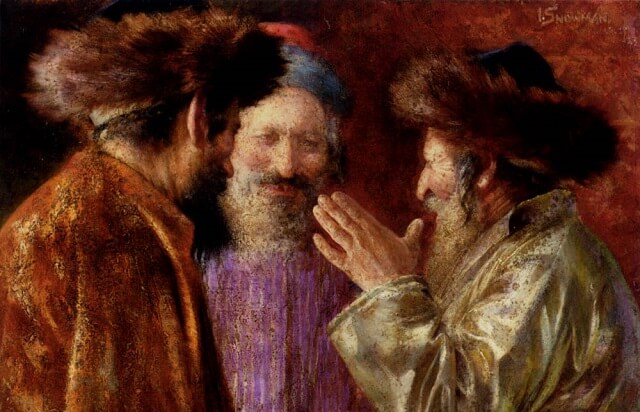
The voice of sweet hope that accompanies us twice a year — on the holy eve of Passover and the conclusion of Yom Kippur — this is the voice of our nation’s soul, as it articulates the depths of its yearning, longings and anticipation: “Next year in Jerusalem!” (Mo'adei HaRe’iyah, p. 463).
Zalman Shazar, who served as Israel’s third president, described an encounter he witnessed as a young boy in the Belarus town of Stowbtsy — an experience that made a lifelong impression on him.
In 1899, the rabbi of the nearby town of Mir, Rabbi Eliyahu David Rabinowitz-Teomim, was invited to serve as chief rabbi of Jerusalem alongside the aging Rabbi Shmuel Salant.
Rabbi Rabinowitz-Teomim, known by his acronym ‘Aderet', agreed to take the prestigious position. He left the town of Mir accompanied by an entourage of rabbis, including his son-in-law, Rav Kook.
Rav Kook at that time was rabbi of Bauska; five years later he would join his father-in-law in Eretz Yisrael, when he was appointed chief rabbi of Jaffa.
Their journey took them to the town of Stowbtsy, where the train made a stop. Out of courtesy to the local rabbi, the travelers paid a visit to the rabbi’s home.
When the news spread that eminent rabbinical scholars were visiting the town, community leaders and townspeople gathered to greet the important guests.
The rabbi of Stowbtsy offered refreshments to the crowd. Lifting his glass, he toasted the health of Rabbi Rabinowitz-Teomim. “To the Rabbi of Mir!”
Those assembled were surprised to see one of the rabbis objecting to the toast.
Rav Kook sprang to his feet, eyes blazing with zealous pride. “What, the Rabbi of Mir? To the Rabbi of Jerusalem!”
Rav Kook said the word “Jerusalem” with such awe and reverence, such fervor and love, that the entire assembly was deeply moved.
Many years later, Zalman Shazar testified: “That childhood encounter — hearing Rav Kook’s passionate outburst of 'Jerusalem!', full of reverence and love for the holy city — that was my first Eretz-Yisrael experience.”
(Adapted from Melachim Kvnei Adam by Simcha Raz, pp. 217-218)